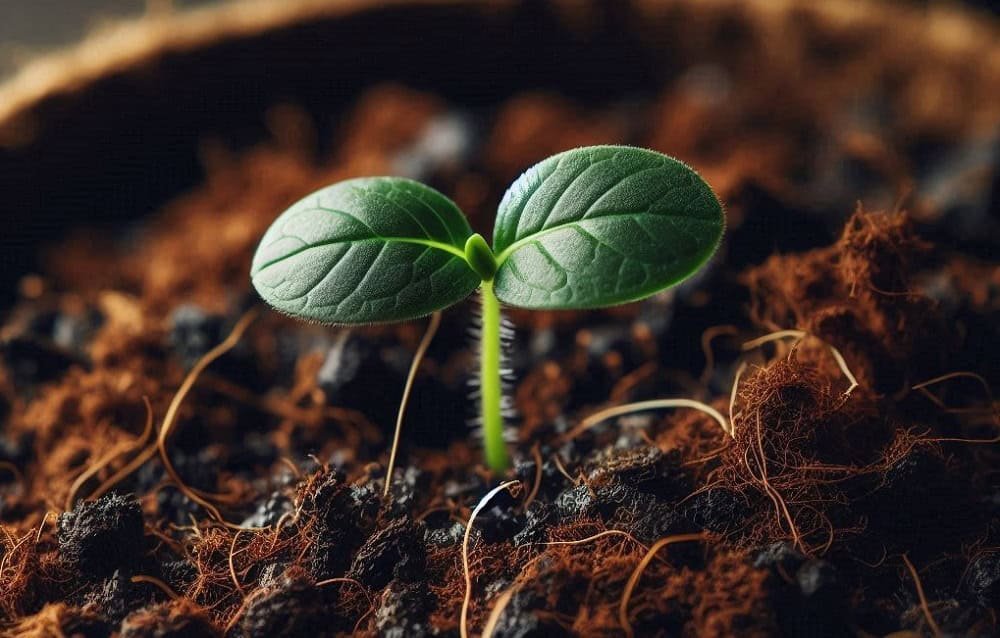
Looking for coco peat Vs rice husk guide?
Gardeners who look after their plants and enjoy gardening should know the differences between coco peat and rice husk. Sometimes, the waste of main products can benefit the growing plants, and the coco peat and rice husk.
The two products can be used as a substitute for each other. Since these products are made using a detailed process before they are put on the market. Cocopeat, the processed coconut product, is brown, while rice husk, the processed rice product, is skin brownish in colour.
We will discuss the cocopeat and rice husks and their properties in detail.
What is Coco Peat?
A coconut’s husks are made into cocopeat. It is a waste material used in gardening and a natural fiber mixed into the soil to grow plants which takes approximately three to four months to make. These are soaked in seawater, where they decompose. After decomposition, they are processed into a more minor form and then ready for sale.
This product is usually sold in brick form, so it needs to be washed after it’s been brought home. It absorbs water quickly, and even a tiny amount of water can cause it to expand significantly. As a result, it is a highly productive and cost-effective growth medium that is reusable every year.
Coco Peat is a lightweight nature making it ideal for hanging plants or terrace gardening. It can air out the soil and ensure plants remain consistently moist. It has some unique properties, but it starts to lose its effectiveness after some time.
Properties of Coco Peat
- Sufficient Air Production: It is an excellent source of air for plants, which helps them grow by supplying their roots with oxygen.
- Moisturization: There is a water storage property that helps plant roots remain moist throughout the year.
- Nutrients: It has no nutrients, so it encourages healthy root growth and requires less fertilization.
- Eco-friendly: The mineral’s biodegradable properties make it eco-friendly because it is not gathered from a sensitive environment.
- Lower Ph: Because of its stable pH, it is beneficial to the soil and plants, keeping them from becoming disorganised.
What is Rice Husk?
Rice husk is made from rice waste and is used in gardening. It is like a shell on top of the grain of rice. There is no need to prepare this product with long procedures because it is prepared by mining rice in fields. Small pieces of wood are also mixed in with the rice husk to maintain its consistency in the soil. This lightweight material helps to keep the soil light and airy.
Rice Husk has become popular because it mixes nicely with soil and is used for long-term planting. It slowly releases a variety of nutrients into the soil with time, eventually breaking down and mixing in with the soil. It can be used with almost any soil type, contains numerous minerals and nutrients, and is affordable.
However, since it is unavailable worldwide, it varies depending on where you live. It has different properties and can be used instead of cocopeat as an alternative.
Properties of Rice Husk
- Less air production: Low oxygen levels make it difficult for roots to grow since the plants have less air available.
- Moisturization: It has less water storage properties and doesn’t hold a great deal of moisture for the whole day.
- Nutrients: It has multiple nutrients, such as carbon, and has positive and negative effects on plants. The negative is high pH in soil, and the positive is balanced plant growth.
- Eco-friendly: Since it is a waste of a current product, this factor makes it eco-friendly because it is not gathered from a sensitive environment.
- Higher Ph: Having a higher pH causes plant growth to be slowed down due to the higher pH level.
Conclusion
In brief, if you want to grow plants for a long time or love small pots and plants. It is essential to consider different properties when purchasing coco peat and rice husk. However, when using coco peat, you can only grow plants for a short time in pots and terraces, and rice husk is much easier and can be used for long-time gardening. Their decomposition processes are different for each one.
Additionally, both of these products can be used as alternatives. But they both have unique properties that you need to know. You can take details about coco peat vs rice husk in our guide before getting hands-on with them.
Contact Earth Scape a coco peat manufacturers in Sri Lanka to order coco peat.
Read More:
Editorial Staff
Editorial Staff at Earth Scape are experts in coco peat.
